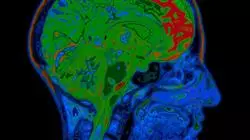University certificate
Accreditation/Membership
The world's largest faculty of medicine”
Introduction to the Program
The latest advances in the area of Clinical Neurology compiled in a highly efficient educational program, which will optimize your effort with the best results"

Although neurological diagnosis is now made with greater certainty than in past decades, this accuracy has undoubtedly been facilitated by the advent of increasingly sophisticated diagnostic research techniques. These advances involve new knowledge and scientific developments fostered by incessant research.
Non-specialized medical professionals need access to the necessary knowledge in this field, even if they are not specialists in this area of work, in order to be able to act efficiently. However, accessing the necessary knowledge in this area and keeping up to date in this area can become incompatible with professional and personal Life. On the other hand, the professional in this specialty needs to find ways of updating their knowledge that is compatible with their personal and professional life.
This program has been created to provide an efficient response to this need: it focuses on real healthcare conditions, is eminently practical, and does not go beyond what is essential in complex topics with little clinical repercussion.
The field of Neurology is wide, complex and extensive. This program will guide the student so that they will be able to apply all the methodology required for the basic mastery of the specialty at the corresponding level in a global, balanced and staggered manner.
Focused on the real context in which non-specialist physicians act and their diagnostic and care needs, this Master's Degree in Update on Neurology will develop the knowledge that is truly necessary in a first or second level practice, avoiding dispersion in the learning effort.
The program aims to train with rigor, teach with precision and provide ways of improvement so that students are able to lead realistic assistance and teaching programs in the specific area of their professional competencies.
All the necessary methodology for the non-specialist medical professional in the field of Neurology, in a specific and concrete program"
This Master's Degree in Update on Neurology contains the most complete and up-to-date scientific program on the market. The most important features include:
- Development of a large number of case studies presented by experts
- Graphic, schematic, and highly practical contents
- The latest developments and cutting-edge advances in this area
- Practical exercises where the self-assessment process can be carried out to improve learning
- Innovative and highly efficient methodologies
- Theoretical lessons, questions to the expert, debate forums on controversial topics, and individual reflection assignments
- Content that is accessible from any fixed or portable device with an Internet connection
This Master's Degree may be the best investment you can make when selecting a refresher program, for two reasons: in addition to updating your knowledge in Neurology, you will obtain a qualification from TECH Global University"
The development of this course is focused on the practice of the proposed theoretical learning. Through the most effective teaching systems and proven methods imported from the most prestigious universities in the world, you will be able to acquire new knowledge in an eminently practical way. In this way, we strive to convert your efforts into real and immediate skills.
Our online system is another strength of our educational proposal. With an interactive platform, which has the advantages of the latest technological developments, we put the most interactive digital tools at your service. In this way, we can offer you a way of learning that is totally adaptable to your needs so that you can perfectly balance this program with your personal or professional life.
Increase your visibility, excellence and professional development by updating your knowledge through this program"

A training program created to allow you to implement your acquired knowledge into your daily practice in an almost immediate way"
Why study at TECH?
TECH is the world’s largest online university. With an impressive catalog of more than 14,000 university programs available in 11 languages, it is positioned as a leader in employability, with a 99% job placement rate. In addition, it relies on an enormous faculty of more than 6,000 professors of the highest international renown.

Study at the world's largest online university and guarantee your professional success. The future starts at TECH”
The world’s best online university according to FORBES
The prestigious Forbes magazine, specialized in business and finance, has highlighted TECH as “the world's best online university” This is what they have recently stated in an article in their digital edition in which they echo the success story of this institution, “thanks to the academic offer it provides, the selection of its teaching staff, and an innovative learning method aimed at educating the professionals of the future”
A revolutionary study method, a cutting-edge faculty and a practical focus: the key to TECH's success.
The most complete study plans on the university scene
TECH offers the most complete study plans on the university scene, with syllabuses that cover fundamental concepts and, at the same time, the main scientific advances in their specific scientific areas. In addition, these programs are continuously being updated to guarantee students the academic vanguard and the most in-demand professional skills. In this way, the university's qualifications provide its graduates with a significant advantage to propel their careers to success.
TECH offers the most comprehensive and intensive study plans on the current university scene.
A world-class teaching staff
TECH's teaching staff is made up of more than 6,000 professors with the highest international recognition. Professors, researchers and top executives of multinational companies, including Isaiah Covington, performance coach of the Boston Celtics; Magda Romanska, principal investigator at Harvard MetaLAB; Ignacio Wistumba, chairman of the department of translational molecular pathology at MD Anderson Cancer Center; and D.W. Pine, creative director of TIME magazine, among others.
Internationally renowned experts, specialized in different branches of Health, Technology, Communication and Business, form part of the TECH faculty.
A unique learning method
TECH is the first university to use Relearning in all its programs. It is the best online learning methodology, accredited with international teaching quality certifications, provided by prestigious educational agencies. In addition, this disruptive educational model is complemented with the “Case Method”, thereby setting up a unique online teaching strategy. Innovative teaching resources are also implemented, including detailed videos, infographics and interactive summaries.
TECH combines Relearning and the Case Method in all its university programs to guarantee excellent theoretical and practical learning, studying whenever and wherever you want.
The world's largest online university
TECH is the world’s largest online university. We are the largest educational institution, with the best and widest online educational catalog, one hundred percent online and covering the vast majority of areas of knowledge. We offer a large selection of our own degrees and accredited online undergraduate and postgraduate degrees. In total, more than 14,000 university degrees, in eleven different languages, make us the largest educational largest in the world.
TECH has the world's most extensive catalog of academic and official programs, available in more than 11 languages.
Google Premier Partner
The American technology giant has awarded TECH the Google Google Premier Partner badge. This award, which is only available to 3% of the world's companies, highlights the efficient, flexible and tailored experience that this university provides to students. The recognition as a Google Premier Partner not only accredits the maximum rigor, performance and investment in TECH's digital infrastructures, but also places this university as one of the world's leading technology companies.
Google has positioned TECH in the top 3% of the world's most important technology companies by awarding it its Google Premier Partner badge.
The official online university of the NBA
TECH is the official online university of the NBA. Thanks to our agreement with the biggest league in basketball, we offer our students exclusive university programs, as well as a wide variety of educational resources focused on the business of the league and other areas of the sports industry. Each program is made up of a uniquely designed syllabus and features exceptional guest hosts: professionals with a distinguished sports background who will offer their expertise on the most relevant topics.
TECH has been selected by the NBA, the world's top basketball league, as its official online university.
The top-rated university by its students
Students have positioned TECH as the world's top-rated university on the main review websites, with a highest rating of 4.9 out of 5, obtained from more than 1,000 reviews. These results consolidate TECH as the benchmark university institution at an international level, reflecting the excellence and positive impact of its educational model.” reflecting the excellence and positive impact of its educational model.”
TECH is the world’s top-rated university by its students.
Leaders in employability
TECH has managed to become the leading university in employability. 99% of its students obtain jobs in the academic field they have studied, within one year of completing any of the university's programs. A similar number achieve immediate career enhancement. All this thanks to a study methodology that bases its effectiveness on the acquisition of practical skills, which are absolutely necessary for professional development.
99% of TECH graduates find a job within a year of completing their studies.
Master's Degree in Update on Neurology
Adequately attending the different conditions, disorders and pathologies that occur in the nervous system requires the implementation of the latest technological and scientific advances. At the same time, in order to offer a quality service and obtain the best results, it is necessary to have highly qualified personnel to take on the challenges of this field by making use of the most advanced knowledge, methods and technologies, so it is essential to have resources that allow them to keep up to date. At TECH Global University we have developed the Master's Degree in Update on Neurology, a theoretical-practical program with which you will acquire new skills that will optimize your daily clinical practice and highlight your profile in a highly competitive sector.
Become a specialist at the largest Medical School
With our Master's Degree you will have within your reach a postgraduate program that will provide you with the strategies, resources and tools necessary to reach a superior level of knowledge in the field of neurology. Through the methodological study of the proposed syllabus, designed together with experts in the area, you will learn the latest advances in the field in terms of scientific research, technology and therapeutic treatments of neurological and psychiatric diseases that affect the population. You will also develop diagnostic criteria that will allow you to identify and diagnose in a timely manner the different symptoms, signs and characteristics of these conditions, as well as to define the basis of treatment in an individualized manner according to the needs and particularities of your patients. In the largest School of Medicine you will be able to take a definitive step that will boost the growth of your professional career.







